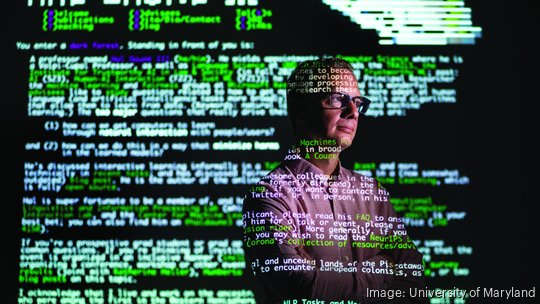
The University of Maryland is creating an Artificial Intelligence Interdisciplinary Institute at Maryland to shepherd all of the College Park school's AI efforts.
A spokesperson said the university plans a new facility "in a central location" on its campus, but that plans are in the early stages.
The interdisciplinary research and educational facility, which will be known as AIM and housed in the Department of Computer Science, will offer major and minor degree programs in AI starting in the fall, as well as AI-focused certificates and workforce development programs.
UMd. is the second D.C.-area university to unveil an AI initiative in recent weeks. American University's business school last month announced plans to incorporate AI-based curriculum across its degree programs. Outside of the region, Pittsburgh-based Carnegie Mellon University said it will invest $110 million in an AI program focused on technologies like multimodal learning, AI for life sciences and autonomous AI symbiosis with humans.
Computer science professor Hal Daumé III, the inaugural director of the Maryland program, told me the institute has garnered enthusiasm from all 12 academic deans across the university's College Park campus.
"I don't know how often that happens, but it's probably not super often," he said of the deans' unanimous support. "We're trying to bring together expertise that already exists on campus, but also grow that expertise in interesting ways."
Doing so will include an approach involving the mathematical technology perspective behind AI development, but it'll also encompass identifying AI's effects on society, jobs and figuring out how to embed human values into AI systems, Daumé said.
The university employs about 100 faculty members across campus who study and teach AI. With the launch of this institute and related initiatives, Daumé said he's expecting that figure to grow by some 40% in the coming years.
"The goal of the institute is really to touch everything like research, education, industry partnerships, business partnerships, as well as internal community building and getting us all talking and knowing what each other is doing," he said.
Now is the best time to do that, he added, noting the exponential advancements in AI just in the last few years. He noted that some employers already expect current college graduates to be familiar with AI and how to use it in the workplace.
"This question 'should an art history student take an AI class or should a business student or a journalism student take an AI class' — that didn't really make sense for that question five years ago," he said. "Whereas I think five years from now, if you ask that question, it's going to be too late."


